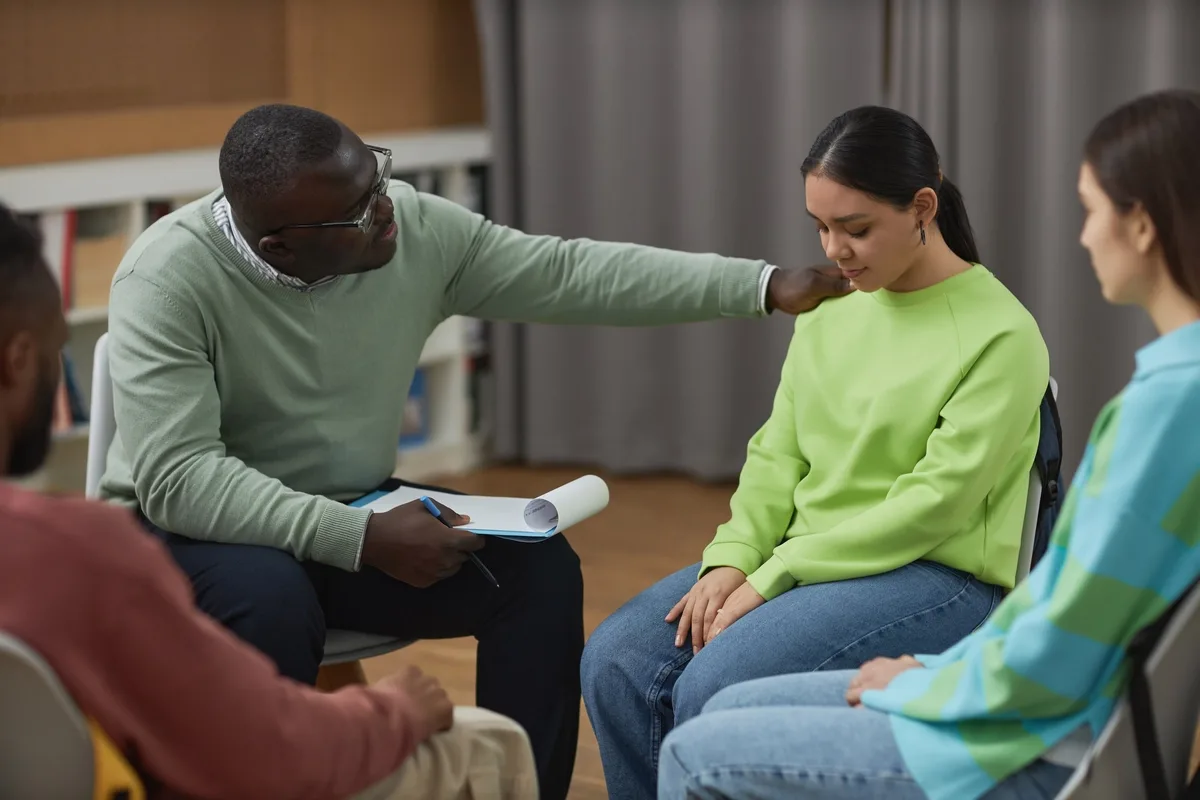24/7 Helpline:
(866) 899-221924/7 Helpline:
(866) 899-2219
Learn more about Group Therapy centers in Center
Group Therapy in Other Cities

Other Insurance Options

Aetna

Excellus

Anthem

Private insurance

Carleon

Magellan Health

Humana

GEHA

Optum

Highmark

Evernorth

Optima

UnitedHealth Group

Meritain

WellCare Health Plans

Access to Recovery (ATR) Voucher

Coventry Health Care

Absolute Total Care

Multiplan

Medical Mutual of Ohio














